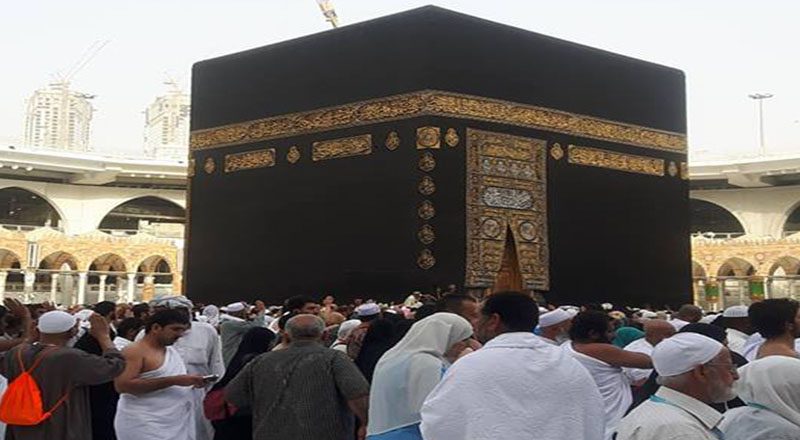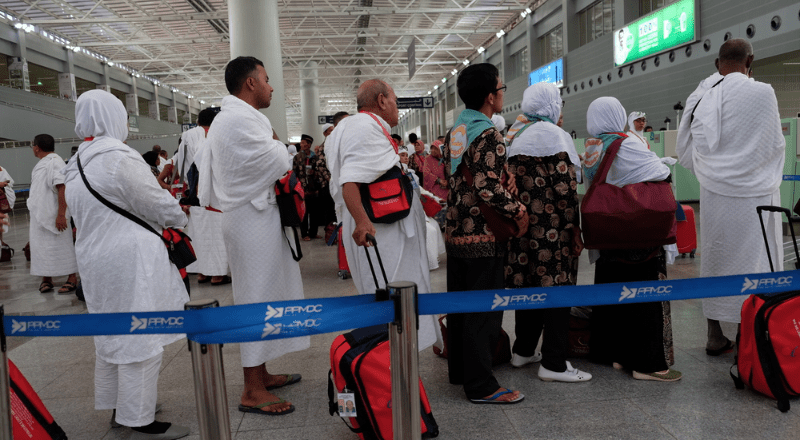Difference Between Hajj and Umrah:
Hajj and Umrah are both pilgrimages of Islam undertaken by Muslims all around the world. A person who has not performed any of them usually fails to comprehend the difference between Hajj and Umrah. Although many of the rituals and practices of Hajj and Umrah are similar, there are many differences between the two, such as:
Significance:
Hajj is considered the major pilgrimage, and Umrah is considered a lesser one. From a religious point of view, the significance of Hajj is higher than that of Umrah.
Rituals:
The rituals for Umrah involve the ihram (ritual of purification), circling the holy Kabah, Sae (the walk) between Safa and Marwah, drinking Zamzam water, and shaving or cutting the hair. However, in addition to all the rituals practiced in Umrah, Hajj includes additional ones, such as spending days and nights in areas neighboring the city of Makkah (Mina, Arafat, and Muzdalifah), stoning the devil, and slaughtering the animal in the name of Allah.
Performing the Pilgrimage:
Another difference between Hajj and Umrah is that Hajj is strictly performed in the designated months of Shawwal, Dhul-Hijjah (Zul Hijjah), and Dhul-Qadah only, whereas Umrah can be performed at any time of the year.
The Rulings for Hajj and Umrah:
The major point of dissimilarity between the two is that Hajj is one of the five pillars of Islam. Allah has made it obligatory for all the Muslims to perform Hajj at least once in their lifetime. As mentioned by Allah in the holy Quran, “And pilgrimage to the House is a duty unto Allah for mankind, for him who can find a way thither” (Aal Imran 3:97).
Prophet Muhammad (PBUH) said (as informed by Hazrat Umar (R.A.): “Islam has been built on five [pillars]: testifying that there is no God but Allah and that Muhammad is the Messenger of Allah, performing the prayers, paying the Zakah, making the pilgrimage to the House, and fasting in Ramadan.”
In the case of Umrah, scholars share varied beliefs. Some consider it obligatory, while others believe that it is merely a Sunnah. To ensure safety, one can perform both Umrah and Hajj. It is recommended to perform ‘Umrah al Tamatu’ (Umrah with Hajj), as it involves performing both Umrah and Hajj.
Types of Hajj and Umrah:
Another point of difference between Hajj and Umrah is that Hajj is of 3 types and Umrah is of 2 types. The types of Hajj are Ifrad, Tamattu, and Qiran. Ifrad is referred to as the Hajj itself, Tamattu is the kind of Hajj where Umrah and Hajj are separately undertaken during Hajj months, and Qiran is the combination or alternative performance of Umrah and Hajj. On the other hand, the two types of Umrah are: Al Umrat al Mutradah (Umrah without Hajj) and Umrat al Tammatu (Umrah with Hajj). The first type can be done alone, while the second must be done with other pilgrims during Hajj month.
The crux of the differences between Hajj and Umrah:
- Hajj and Umrah are both Islamic pilgrimages. The core areas of differentiation between the two are based on the level of importance, method of observance, and method of practice.
- Hajj is the major pilgrimage, having more religious significance as compared to Umrah.
- Hajj is obligatory to perform at least once in a lifetime; on the contrary, the Ulema debate if Umrah is compulsory or a Sunnah.
- Hajj has to be performed in the designated Islamic months, whereas Umrah can be performed at any time of the year.
- Hajj is one of the 5 core pillars of Islam, but Umrah is not.
- Hajj can be performed with fellow pilgrims, while Umrah can turn out to be a highly individualized ritual.
- Hajj and Umrah seem similar in the beginning. Hajj is more detailed and involves more rituals and is of longer duration, while Umrah can be performed in less than a few hours.
Despite all the above-mentioned differences between Hajj and Umrah, there are many similarities between the two. Both of them symbolize the love of devotees towards Allah, strengthen the level of faith, unite Muslims from all around the world, and purify the mind and soul.



